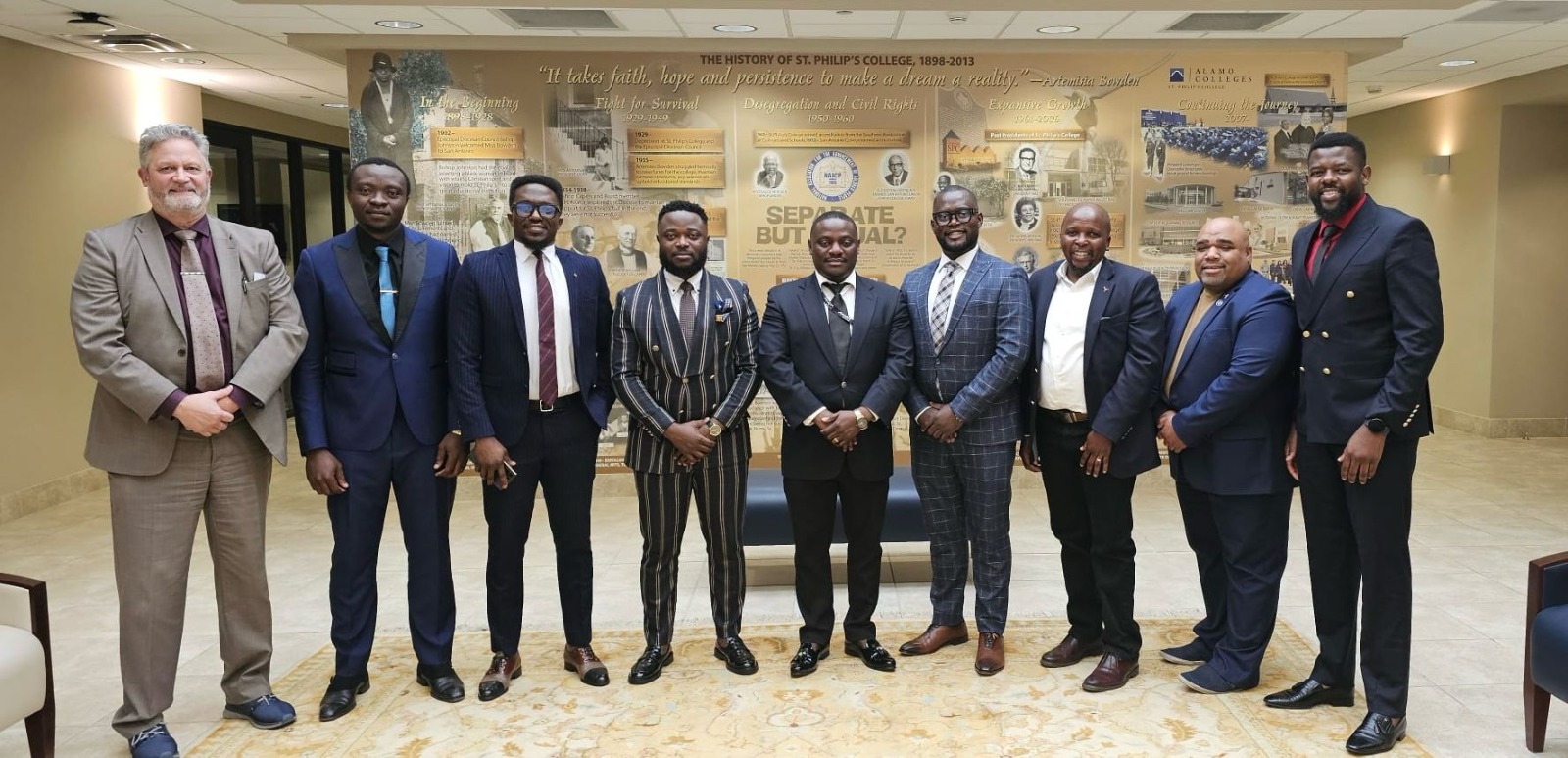Fostering Inclusive IT Education: St. Philip’s College and Cameroonian-owned IT training Companies in Texas, USA Collaborate
St. Philip’s College a renowned institution in Texas recently hosted a pivotal meeting with a consortium of Cameroonian-owned IT training companies in Texas. Among the attendees were CEOs from
- JoinIT Solutions
- KiawitechIT Academy
- Beriteck
- Mambel Technology Group
- Epiliki Agile Academy
- Softpartnas
- Mozilascrum
- Notably, Dr. Adena Williams Loston, President of St. Philip’s College, and Mr. Randall Dawson, Vice President, Wesley B Wells, Vice President for Student Success, Dr. Solomon Nfor and other faculty staff were also in attendance, highlighting the significance of the collaboration.
Together, they explored avenues for collaboration to advance IT education, particularly in minority communities and across Africa.
The gathering emphasized the importance of international collaboration in the ever-evolving field of information technology. With the global marketplace becoming increasingly interconnected, partnerships between educational institutions and industry leaders from different regions can lead to innovative solutions and mutually beneficial outcomes.
St. Philip’s College, known for its commitment to excellence in education and workforce development, seeks to expand its reach and impact by engaging with international partners. The presence of Cameroon-owned IT training companies in Texas presents a unique opportunity for cross-cultural exchange and knowledge sharing.
The consortium brings a wealth of expertise and experience to the table. Their participation in the discussion signifies a shared interest in exploring collaborative ventures that leverage their strengths and resources with those of St. Philip’s College.
The discussions centered around several potential areas of partnership:
Providing Training Equipment: Access to modern equipment is crucial for effective IT education. The participants discussed initiatives to supply training equipment to underserved communities, including computers, software licenses, and networking tools. By enhancing access to resources, the partnership aims to empower more individuals to pursue careers in IT.
Subsidizing Training Costs: Financial barriers often hinder access to quality IT training, particularly for individuals from minority communities and Africa. The group deliberated on strategies to subsidize training costs, such as scholarships, grants, or reduced tuition fees. By making IT education more affordable, the partnership aims to broaden participation and diversity in the field.
Internship Opportunities: Internships play a vital role in bridging the gap between education and employment. The companies discussed plans to collaborate with St. Philip’s College to provide internship opportunities for students. These internships would offer valuable hands-on experience and potentially lead to employment opportunities within the companies or their networks.
Sensitization Campaigns: Raising awareness about the benefits of IT education is essential, particularly in developing countries. The participants explored the idea of launching sensitization campaigns to dispel myths and inspire individuals to pursue careers in IT. By leveraging their collective expertise and resources, the partnership could reach a wider audience and advocate for IT education.
This potential partnership represents a significant step towards fostering inclusivity and diversity in the IT industry. By addressing barriers to entry, providing opportunities for skill development, and advocating for IT education, the collaboration aims to empower individuals from all backgrounds to thrive in the digital age.
As the discussions progress, the stakeholders remain committed to translating these ideas into actionable initiatives that will benefit communities, bridge gaps, and pave the way for a more equitable and inclusive IT landscape. Together, they are poised to make a meaningful difference in the lives of aspiring IT professionals, both locally and globally.

